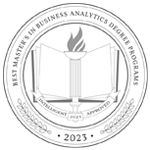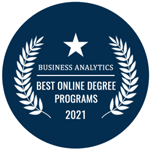This course focuses on spreadsheet modeling to support decision making by organizations in service industries, such as healthcare, banking, distribution, and education. Students develop critical thinking and problem solving skills to address real-world problems. The spreadsheet modeling capability acquired is highly practical for managers and administrators. Course topics cover display charts, data exploration. decision-making logic, reference functions, financial impact of loans and investments, project management, what-if analysis, goal seek. visual basic programming, and other advanced tools.
This course provides the knowledge about fundamentals of health information systems (HIS) and the role of information systems in efficient operation of healthcare organizations. The course specifically focuses on: evolution of HIS, HIS components and basic HIS functions, technology infrastructure for healthcare organizations, basic concepts such as EHR, HIE, CPOE, and COSS, HIS standards such as HIPAA, HL7, and DICOM, strategic information systems planning for healthcare organizations, systems analysis and project management, information security issues, and role of HIS professionals in health organizations.
Upon completion of this course, the students will build skills to acquire, create, examine, and manage healthcare data. The course introduces students to contemporary sophisticated data management and analytics software that is most used by the healthcare industry. The students will develop competency in data formats, data conversion, data export-import, data acquisition and cleansing, data dictionary and data manipulation methods, setting domains, constraints, optimum data types, advanced SQL queries, data visualization, and management of data resources including backups and restore.
This course introduces concepts, techniques, and tools for managing and understanding data in healthcare. The course focuses on teaching students to use healthcare data to make decisions, transform health care delivery, and improve public health. Students will learn how to collect, process, analyze, visualize, and report structured and unstructured clinical and operational data. Topics covered include healthcare data measurement, statistical analysis, and data mining. This course will discuss challenges related to healthcare analytics such as data privacy, security, and interoperability.
This course introduces students to the management and coordination of enterprise data resources to improve enterprise-wide decision-making. Students will learn how to identify key performance indicators from enterprise data, how to differentiate enterprise analytics from other forms of analytics, how to determine what proprietary data will provide analytical advantage to maximize the impact on the enterprise, recent technologies for analytics and best practices from recent cases. Students will engage in an iterative process of exploring data from multiple functional areas within an organization to derive actionable insights as well as communicate findings to help enterprises improve the quality of their decisions.
This course offers a comprehensive introduction to deep learning and its applications in artificial intelligence, integrating both theoretical foundations and practical applications. Students will explore essential concepts including convolutional neural networks (CNNs), unsupervised learning, generative adversarial networks (GANs), and more. Through a combination of lessons, quizzes, hands-on exercises, and a group project, students will develop expertise in applying deep learning techniques to solve complex problems in areas like image classification, object detection, and natural language processing. By the end of the course, students will be equipped to design deep learning solutions across a variety of industries, such as healthcare, e-commerce, insurance, transportation, and cybersecurity.
This course covers the fundamentals of generative AI theory and applications, such as Large Language Models (LLMs), Generative Adversarial Networks (GANs), and Variational Autoencoders (VAEs), while emphasizing hands-on experience in deploying these models in real-world business scenarios. Students will gain expertise in using state-of-the-art frameworks and tools to generate text, images, and other media, while also learning how to fine-tune and optimize these models for specific business tasks such as content generation, personalization, automation, and creative augmentation. Prerequisite: INFS 6351 or INFS 6359 or INFS 6370 or QUMT 6350.
This course provides students with comprehensive understanding of problems and solutions related to information security and information assurance in organizational contexts. Students learn how to conduct quantitative and qualitative security risk assessment analyses related to site safety and security, hardware and software reliability and risks, and network reliability and security. Students will carry out data collection and analytics methodologies which address expected failures, incidence and severity of attacks, accidents and acts of nature, and their impacts on operations and budgets.
The growth of data in all aspects of life in emails, weblogs, tweets, sensors, videos, and text has necessitated the use of Big Data and advanced analytics techniques to support large-scale data analytics. This course is designed for novice programmers who want to understand the core platforms and tools to analyze big data. This course brings together key Big Data tools on a cloud-based services platform to show how to efficiently manage big data. Students will be guided with hands-on experience in how data scientists use techniques such as MapReduce, Hive, Pig, and Spark to design and build big data applications to solve business problems with large volumes of data. Topics include the Hadoop architecture, social media analytics, link analysis, and stream analytics.




